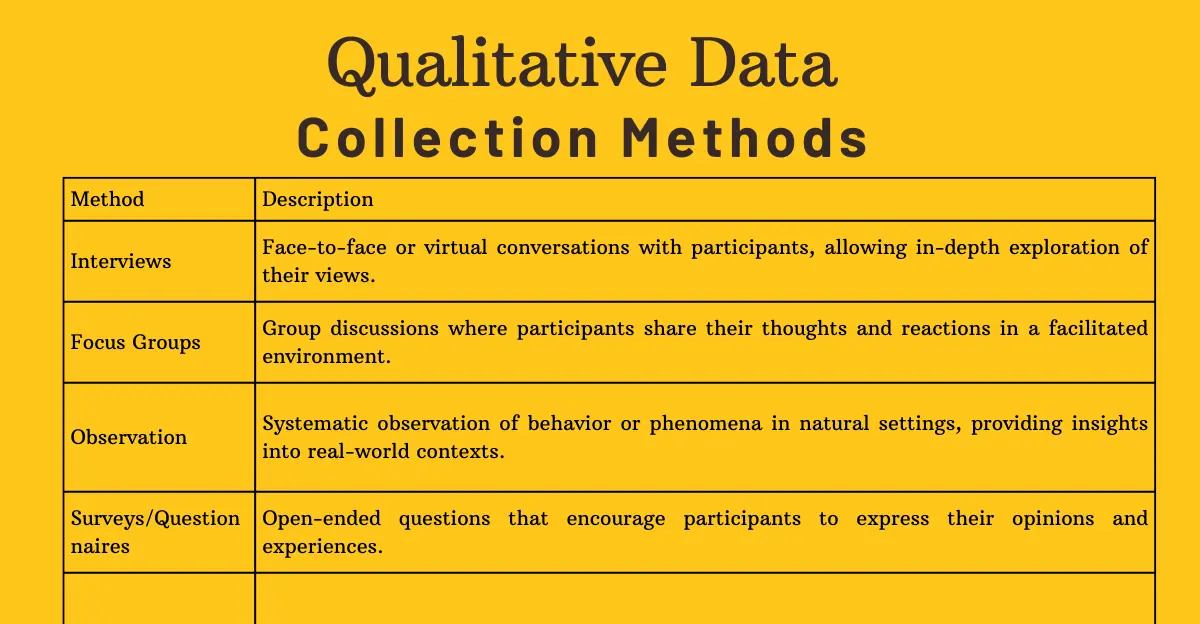Scientific observations are systematic and objective data collection processes that aim to gather information about the natural world. These observations serve as the foundation for scientific research and contribute to the development of theories and understanding of various phenomena. Scientific observations can be broadly categorized into two main types: qualitative observations and quantitative observations.
There are diverse and fascinating ways to collect quantitative data and qualitative data in science, each offering unique insights into the topic at hand. Here are some of the most common methods:
1. Interviews:
- In-depth interviews: One-on-one conversations with participants allow for exploration of individual experiences, beliefs, and motivations in detail.
- Focus groups: Group discussions facilitate interactions between participants, revealing shared and diverse perspectives through group dynamics.
2. Observations:
- Non-participant observation: Researchers observe participants in their natural environment, gathering data on behavior and interactions without intervening.
- Participant observation: Researchers actively participate in the setting they observe, gaining deeper understanding but potentially influencing the behavior.
3. Document analysis:
- Analyzing existing texts like diaries, interviews, or social media posts can provide insights into cultural norms, personal experiences, or historical events.
4. Audiovisual methods:
- Recording audio or video of interviews, observations, or naturally occurring interactions can capture rich data for later analysis.
5. Creative methods:
- Artistic expression through drawing, photography, or storytelling can offer unique ways for participants to communicate their experiences and perspectives.
Choosing the right method depends on several factors:
- Research question: What kind of data do you need to answer your research question?
- Participants: Who are you studying and what setting are they in?
- Resources: What time, budget, and expertise are available?
- Ethical considerations: Are there any privacy or ethical concerns with the chosen method?
Remember, successful qualitative data collection requires flexibility, sensitivity to the setting and participants, and meticulous documentation. The goal is to gather accurate and rich data that reflects the diverse and complex realities being studied.


